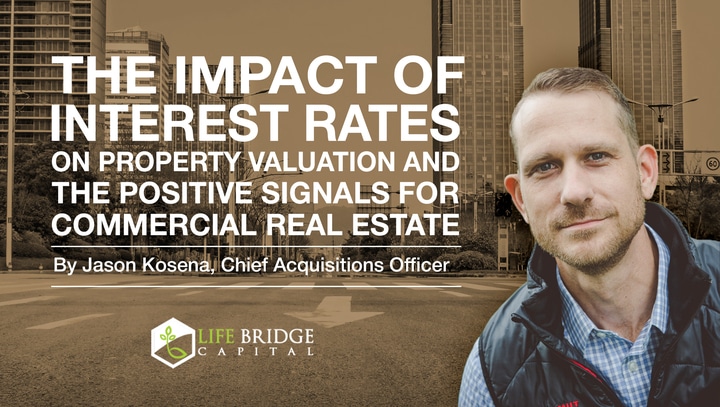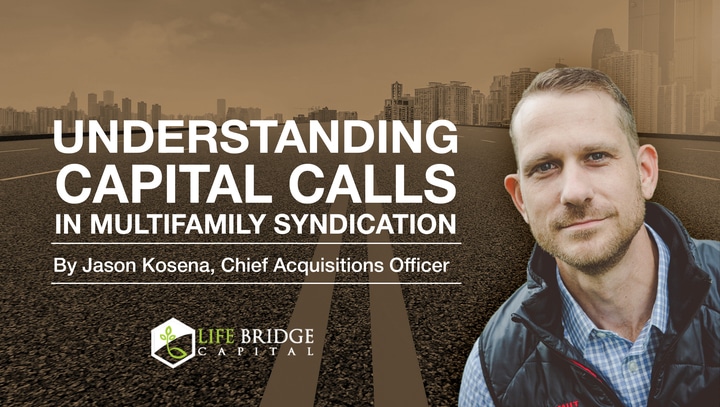Multifamily properties are solid investments, given that they are tangible assets that offer better preservation of capital than most other investment assets. However, an accident or devastating weather is all it takes to turn your lucrative asset into a financial liability and a legal burden. Properties with more units, more tenants, and common amenities constantly face the increased risks of accidents and unpredictable factors that can interrupt business and income flow. For this reason, it is crucial to protect your multifamily business by having the right insurance policies for your property.
Multifamily real estate insurance is the topic of my recent conversation with J Darrin Gross, a commercial real estate insurance broker based out of Oregon. Darrin helps real estate investors manage property risks and protect their assets from losses. In this blog, I want to share with you some key elements about multifamily property insurance and hopefully, give answers to some of your questions. If you want to listen to the full podcast, click here.
Why Do I Need Insurance?
As with any asset class multifamily investing comes with risks that we, as operators, must manage. We want to identify potential hazards that can cause damage to our business and take steps to avoid, minimize or transfer those risks. Try as we might, however, we will never be guaranteed 100% risk elimination and will always be plagued by the question of our ability to tolerate crises and emergencies when they do come. And so, to have that peace of mind, we have the option to transfer the risk using insurance. “Insurance is a contract that transfers risk to the insurance company in exchange for the premium that you pay,” explains Darrin.
“For investors, the cost of insurance should be included as an operating expense similar to property management or taxes and should be included when calculating the net operating income,” he adds.
When Should I Contact an Insurance Broker?
Insurance should be one of the first things that an investor thinks about when acquiring a property according to Darrin. “If you’re borrowing money, your lender’s going to require it,” says Darrin. “When buying a property, especially if you’re buying value-add properties, it is best to consult an insurance broker as you’re running the numbers doing due diligence and before you write a letter of intent.”
More importantly, Darrin suggests building a relationship with a broker, adding that a local in the property location who’s familiar with the territory might be more helpful. ”Start the process early on in the property acquisition phase. Talk with your insurance broker and be aware of what you have and communicate with them and ask them what they need to get you the best quote,” advises Darrin.
What Concerns Should I Know About Before Buying or Insuring a Property?
Multifamily insurance companies want to make sure that the property that they are covering is safe to be lived in, and these are the concerns that property owners must meet before the property is insured or even before buying the property. Darrin advises owners to have answers to the following concerns.
- The four systems
As multifamily properties tend to be older, they will need capital improvement and some deferred maintenance. The insurance broker will want to be updated on the four basic systems: roof system, electric system, heating system, and plumbing system – which all have a limited life expectancy.
“When you’re dealing with a seller, if you can find out the most recent date these four systems have been updated or replaced, you’ll be much further ahead,” says Darrin, emphasizing that knowing these things before making your offer can help you and your broker to put yourself in a position of strength when negotiating with the seller.
- Your plans for the property
Insurance brokers will want to know what you want to do with the property. “If it’s going to be a heavy lift or if it’s more a matter of it being fully occupied and you’re just going to continue to operate it. Knowing your plan would help insurance brokers to tailor insurance packages with specific property and liability coverages that you require,” says Darrin.
- The property’s loss history
Darrin recommends that investors need to obtain information on the seller’s record of insurance losses associated with the property as part of due diligence because the property’s history of loss could affect the rate of insurance.
“If there was a fire because the owner failed to fix some electrical issues, you may find out you can’t get insurance or at least something that would be affordable. If there’s a horrible loss or had some claims that didn’t come up in the early stage of due diligence, you could be surprised as it could upset your numbers,” cautions Darrin, adding that a property’s loss history has to be requested by the seller from his or her insurance broker. This can delay getting a competitive quote for your own insurance.
What are the general types of multifamily insurance?
Multifamily insurance coverage is divided into two categories: (1) ‘Property’, or ‘first party’ coverage and (2) ‘Liability’, or ‘third party coverage’ – damage to others for which you are legally responsible.
Property insurance includes your building and its contents, business personal property, and business income or loss of rent. If damage to your property occurs during the policy period, your policy will provide the money needed to repair or replace your damaged property. In addition, it can cover the loss of income or increase in expenses resulting from the damage.
Liability insurance provides the funds needed to defend you from lawsuits and pay for damages to others for losses you are deemed responsible for. It protects you as a lessor against liability claims for bodily injury and third-party property damage.
How to Choose an Insurance Broker
Here are some things to keep in mind when choosing an insurance broker.
Experience
Know the broker’s level of experience working with real estate investors in the asset class particular to your needs. Hence, a broker knowledgeable with multifamily syndication deals would be preferable and would understand what’s important to you. Cost matters, so it is important that your broker is able to help you understand what you are buying and how you are protected.
“Insurance brokers and companies are your (property owner’s) partner in a sense that they don’t want to have a loss. If you recognize that you have the same goal then more than likely, your experience will be pleasant and profitable,” adds Darrin.
Access to markets
An insurance broker who has access to markets would be especially helpful if you’re dealing with value-add properties, advises Darrin. A newer property that has up-to-date systems would need no value-add capital for improvement but an older value-add property needing capital improvements would benefit from a broker’s access to markets. “If you’re with somebody that doesn’t have access to viable companies, that can limit your ability to work just based on their ability to place coverage,” says Darrin. Brokers who have established relationships with multiple insurance companies will be able to provide you with various coverage options.
FINAL THOUGHTS
Securing suitable insurance can be a challenging task for multifamily operators and property owners. But with the right broker and a sound risk mitigation plan, you can rest easy knowing that you’re protected.
–
Interested in multifamily investing? Our team will be glad to assist you with any questions you have. Please email us at [email protected] or call to see if LifeBridge Capital’s investments are a fit for you.


